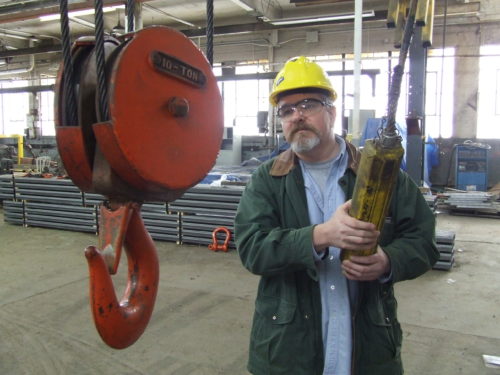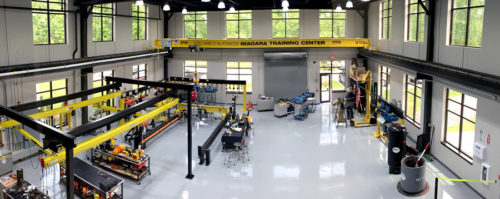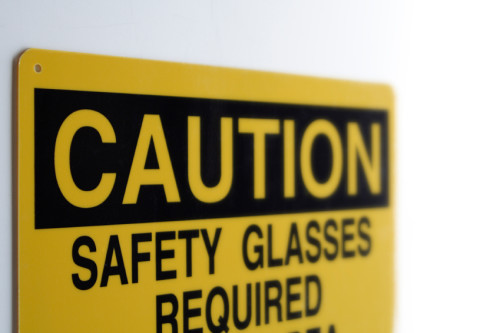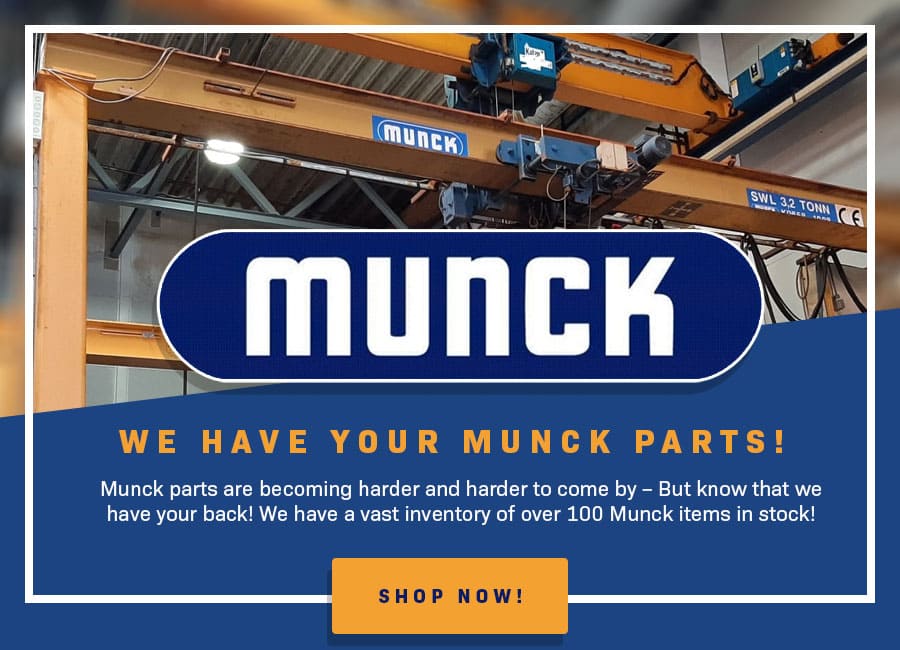Benefits of Crane Inspection Certification
Leave a CommentWritten by Tom Reardon, Technical Instructor specializing in Hoists and Overhead Cranes for Columbus McKinnon Corporation
Crane owners are increasingly requesting certification to ensure that the individuals inspecting their cranes are fully qualified. To demonstrate their crane inspecting qualifications, many inspectors rely on Specification 78, published by the Crane Manufacturers Association of America (CMAA), as the most widely accepted industry standard.
RELATED: CMCO Product Catalog
 Even the most experienced crane technician benefits greatly from getting certified, in ways such as:
Even the most experienced crane technician benefits greatly from getting certified, in ways such as:
- Enhanced and Continuing Education: Certification promotes education and continued education for technicians throughout their careers. This leads an employee to be more productive, which can lead to lower costs and better efficiencies.
- Reduced Risk of Inspection Oversight: Certification drastically decreases the risk that a technician will miss something during an inspection and creates a safer work environment for all employees involved in crane operation.
- Awareness of Industry Updates: As certifications expire, a technician must come back for training to prepare for re-certification. In the process of doing so, they learn about any new changes in safety standards, technical papers, and manufacturers’ recommendations.
What Does Crane Inspection Certification Training Cover?
 Columbus McKinnon Corporation (CMCO)’s Crane and Hoist Inspection and Certification training was professionally developed by our full-time training staff. The program, the most comprehensive training course available in the industry today, applies to all brands of cranes and hoists.
Columbus McKinnon Corporation (CMCO)’s Crane and Hoist Inspection and Certification training was professionally developed by our full-time training staff. The program, the most comprehensive training course available in the industry today, applies to all brands of cranes and hoists.
Columbus McKinnon certified crane inspectors receive 24 hours of specialized training covering all aspects of cranes and hoists, including suspension, structure, motors, controls, gears, wheels, brakes, testing, and more.
In CMCO’s newly built 3,000 sq.ft., state-of-the-art training center, a 20-foot, top-running crane structure allows classes to perform hands-on inspections as they would in the real world. To add another layer of complexity into the practical evaluation of the crane technician, the course instructor intentionally incorporates deficiencies into the crane during the test inspection.
By the end of the course, a CMCO certified technician is knowledgeable of OSHA regulations, familiar with all pertinent ASME standards, and has passed a challenging written examination. Inspectors certified by Columbus McKinnon meet — and often even exceed — the requirements of CMAA Specification 78.
Many of our Channel Partners, like American Crane & Equipment Corporation, have taken advantage of CMCO’s Crane and Hoist Inspection Certification training. By investing considerable time and resources to certify their inspection personnel, American Crane & Equipment Corporation ensures that the inspections their team conducts for customers are thorough, accurate, and honest.




 The partnership demonstrates OSHA’s confidence in CHM as a trusted resource in an ongoing effort to increase workers’ safety. In a recent
The partnership demonstrates OSHA’s confidence in CHM as a trusted resource in an ongoing effort to increase workers’ safety. In a recent 
